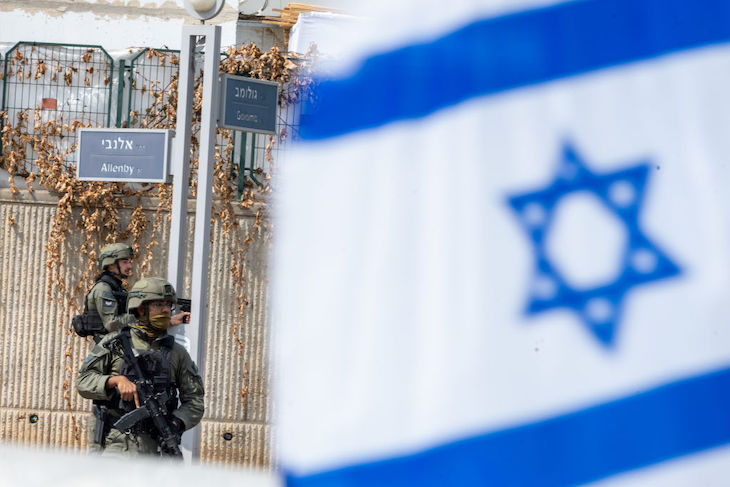Take a step back and it’s a no-brainer: If you want a healthy society, you need a spirit of unity. As we saw in London during the Blitz – often romanticised for its fabled ability to ‘pull together’ – if citizens feel they are part of a national family, they can maintain their morale even in the face of great adversity.
The same is true in modern times. It must surely be the case that, the more people feel a meaningful part of a nation, the less alienation, disenfranchisement, discrimination and resentment there will be. Deaths of despair from drug abuse or suicide will reduce, as will poverty, depression and family breakdown. Productivity, optimism and wellbeing will increase.
Different countries have different historical and demographic challenges, but from South Korea – where researchers found that ‘national pride is positively associated with happiness’ – to our own shores, where the Office for National Statistics concluded that ‘perceptions of unity within Britain are associated with higher average life satisfaction, happiness and feelings that things done in life are worthwhile’, strong social bonds are essential to the health of the body politic.
The willingness to make sacrifices for the greater good of the country is instilled in Israelis from a young age
Let’s talk, then, about national service. When the idea was floated during a speech by the head of the British Army, General Sir Patrick Sanders, on Wednesday, amid looming threats from Russia, China and elsewhere, it was immediately subjected to widespread mockery. Never had the suggestion of serving your country been so derided. Twitter was awash with jokes and memes poking fun at the values for which our grandparents gave their lives, and coming up with inventive ways to avoid any potential draft. I don’t want to be accused of a sense of humour failure, but you don’t need to be Sigmund Freud to understand that jokes tell you something about the unconscious of a nation. In short, at the merest whiff of sacrifice for one’s country, Britain laid bare the depth of her neuroses.
Across the democratic world, societies are in a state of slow-motion collapse. Birth rates are below replacement level. Aside from those – like our own – that rely upon mass immigration to balance the books, populations are, in many cases, becoming smaller and older. In Japan, it’s been reported that more nappies are sold for old people than babies. Happiness levels are plummeting; national pride is diminishing; deaths from suicide, alcohol and substance abuse are worryingly high. Loneliness and teen suicide have reached epidemic levels. It seems that, as we get richer, we get older, more divided and more miserable. Only one country dramatically bucks this trend. Despite growing very wealthy, it has retained a powerful sense of national pride and togetherness, with a strong ethos of sacrifice for the good of the nation. It may come as no surprise that conscription is a fundamental part of its national identity.
In their excellent new book The Genius of Israel, the former White House and Pentagon adviser Dan Senor and his co-author Saul Singer lay out the argument vividly. Despite its conflicts and stresses, Israel is the fourth-happiest country in the world, behind only three Scandinavian states. Israel’s average age is more than a decade lower than Europe. Its population is not just young, it is growing, with women commonly having three or four children. Its levels of alcoholism, drug abuse, suicide and loneliness are negligible; the ultra-orthodox, among the poorest in society, suffer from almost no crime, substance addiction, broken families or unhappiness, which accompanies poverty in every other country on Earth. Notwithstanding the tension between its Arab, ultra-orthodox, secular and national-religious citizens, Israel’s social cohesion is deep and very powerful.
This has been especially vivid since October 7. The chess icon Garry Kasparov recently joked on X: ‘What does mobilisation have in common in Russia and Israel? Long lines for flights to Tel Aviv.’ But he was making a serious point. Since Hamas’s depraved rampage, the Israeli diaspora has returned home en masse to join the war effort. There has been no large exodus from the country. If you can find me another example of this in modern history, I’d be surprised. Moreover, polling has shown that since October 7, levels of optimism in Israel have increased. Israeli Arabs, some of whom rioted during the conflict of 2021, have largely pulled behind the country, saving the lives of their Jewish compatriots on October 7 and fighting for the IDF in Gaza. Which brings me to conscription.
Senor and Singer argue convincingly that it is Israel’s profound social coherence and solidarity that lies at the core of its miraculous social success. The willingness to make sacrifices for the greater good of the country is instilled in Israelis from a young age, and reaches its most vivid expression in military service. It is this sense of social responsibility that enables young fathers to say goodbye to their little children and head off to war, from which they may never return. They do not act in this way to kill civilians. They do so to protect their families, their country and their people.
This is a national spirit that used to be familiar to us in Britain and across the West. In recent decades, however, as memories of wartime fade and we grow fat on the spoils of the free market, we have been engaged on a project of self-sabotage. We are now more divided and less self-confident than ever before. Levels of national pride have plummeted. In the United States, fewer than half of adults now describe themselves as ‘extremely’ proud of their country, according to Gallup polling, a measure that has been declining sharply over the last ten years. The problem worsens among young people; in Britain, just fifteen per cent of those between the ages of 18 and 24 now describe themselves as ‘very’ patriotic, according to a government survey, while more than half failed the ‘Life in the UK’ examination, designed to test a newcomer’s knowledge of British values, traditions, culture, politics, history and laws before they immigrate to the country.
Research into ‘common ground and division’ by the More In Common think tank concluded that we face a choice. ‘One path leads to the deepening polarisation that is being experienced in other countries, where ‘us-versus-them’ dynamics shape national debates, causing distrust and even hate between people on either side of the divide,’ it says. ‘The other path leads to a more cohesive society where we build on common ground and focus on the issues that we agree are more important than anything else.’
Our national response to the suggestion of sacrifice for our country exposes the alacrity with which we are sauntering down the path to destruction. A miserable, aging and divided country will lack the ability to defend itself. Our enemies know this. War may be coming.







Comments